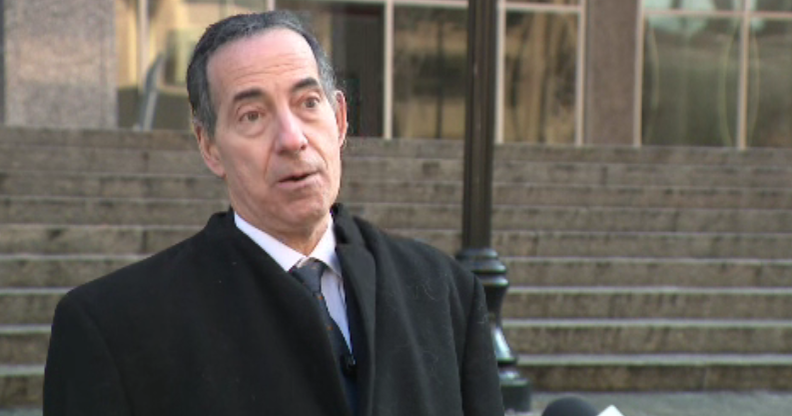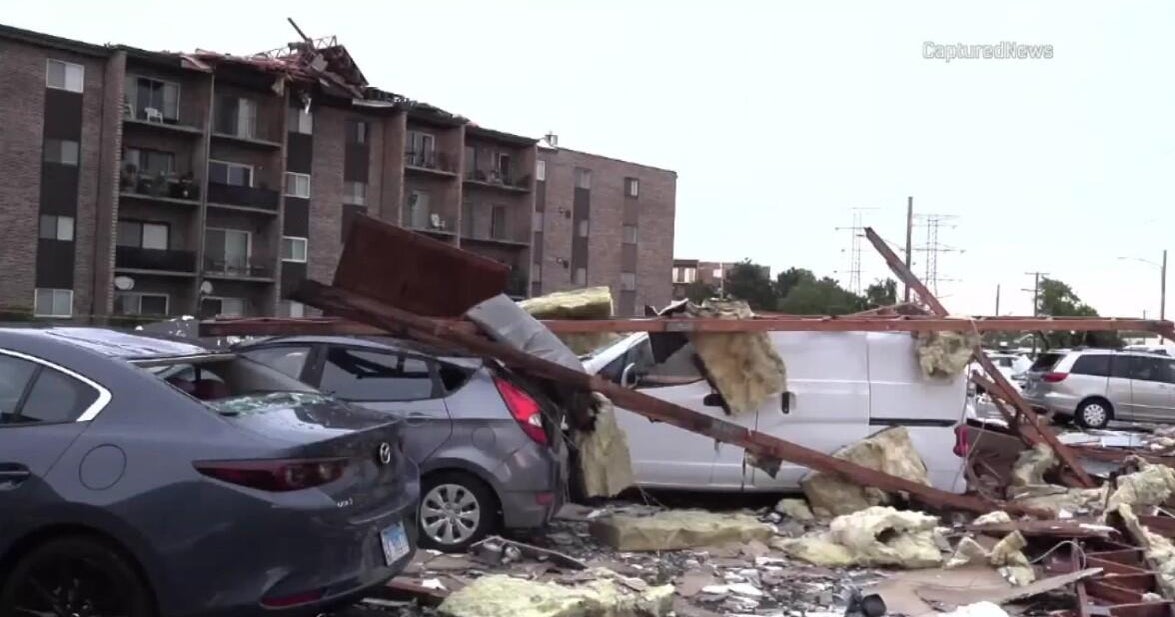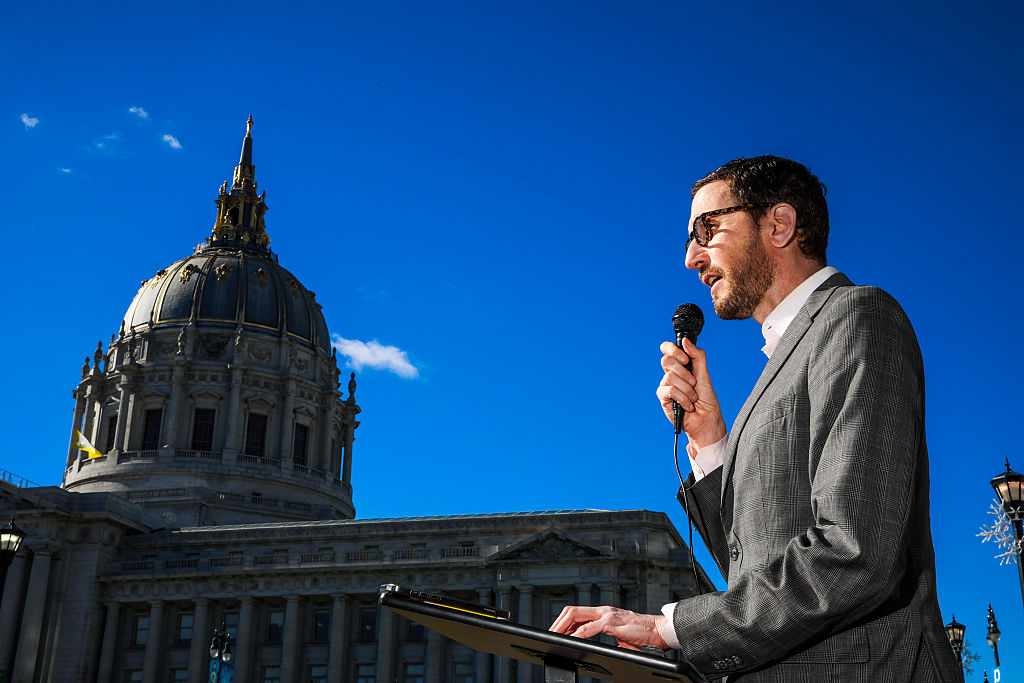Transcript: Rep. Will Hurd on "Face the Nation," February 17, 2019
The following is a transcript of the interview with Republican Rep. William Hurd of Texas that aired Sunday, Feb. 17, 2019, on "Face the Nation."
MARGARET BRENNAN: We're back with Texas Republican Congressman Will Hurd. He joins us from his district in San Antonio this morning. Congressman, you are directly impacted by anything at the border since about 800 miles of it are in your home district. How is this emergency declaration going to impact your constituents?
REPRESENTATIVE WILL HURD: Well I have 820 miles of- of the border. I'm the only Republican that represents a- a border town and I spent almost a decade as an undercover officer in the CIA chasing bad guys all over the world. How is this going to im- impact my district? First and foremost I don't think we needed a- a national emergency declaration. That is not a tool that the president needs in order to solve this problem. This is a problem that has existed for- before Ronald Reagan. And what we need to be doing is- and is- and remember we just passed a piece of legislation that adds more technology, that has physical barriers in order to- to solve this problem.
And I was just down on the border. I was in the Del Rio sector, the border is broken up into sectors. I was specifically in the city of Eagle Pass and then I crossed the border into Mexico in Piedras Negras, they are dealing with a- a recent caravan. And guess what? There was unprecedented cooperation between the U.S. government and the Mexican government. We- we have to remember that most of the people that are coming here illegally are coming from Central America. They're not Mexican citizens. In this one sector I visited, 92 percent of the people that are coming there illegally are from Central America and 80 percent of that is specifically from Honduras. So this is a shared problem with us and Mexico. And then this new administration in Mexico we've seen this level of cooperation to- to deal with this shared problem.
We need to address things like border patrol pay. There's a reason that Border Patrol has a retention problem. We don't have enough Border Patrol officers. We need additional technology. Everybody thinks that there's the latest and greatest technology along the border. It doesn't. This bill we passed last Friday- or this Friday recently- that got signed into law has a program called the innovative tower initiative which is what I describe as the smart wall, it uses technology to figure out what's going on back--
MARGARET BRENNAN: Right.
REP. HURD: and forth across our border. But this--
MARGARET BRENNAN: What about the--
REP. HURD: --executive. Go ahead.
MARGARET BRENNAN: But- but what about the private property that is going to be seized to build the wall that the president is saying he's going to do? That must impact your constituents.
REP. HURD: Oh absolutely. And in the great state of Texas we care about a little thing called private property and there's going to be over 1,000 ranchers and farmers potentially impacted if the government comes in and takes their land, and this is how they do it. They say "hey we need this land. Here's what we're going to give you." And they get to automatically take it. And then the rancher or the landowner has to go in and fight in court to make sure that they're at a minimum getting what they- they- they- they are owed because of- of the price of the land. In some places in a part of th-the wall is being designed or they think they want to build a wall, we're going to be ceding one point one million acres of arable land.
MARGARET BRENNAN: That's tremendous.
REP. HURD: This is land that could be- I-It's crazy. It's crazy.
MARGARET BRENNAN: Congressman I've got a great break here so we're going to continue it on the other side.
REP. HURD: Good. Copy.
*** COMMERCIAL BREAK ******
MARGARET BRENNAN: Welcome back to FACE THE NATION. We're continue our conversation with Texas Republican congressman Will Hurd. To pick up where we left off, we were talking about how your home district is going to be impacted by this emergency declaration. Today White House Senior Adviser Stephen Miller told Fox News's Chris Wallace that the White House has the authorities to build a couple hundred miles by the end of the next appropriations cycle, which is September 2020. You sit on House Appropriations. Can Congress or the courts stop the administration from getting the money to do this?
REP. HURD: Well this-the-what this-this national emergency declaration does, is it says the president is going to obligate funds- so he's going to take funds from other places. But you can't spend eight billion dollars in the next six months. And so what I think you're going to see in the next appropriations cycle, is restricting some of that funds.
And then the question you have is when it comes to military construction, alright, can you take funds from that was going to be used to constructing things the military and y-you outlined a couple of items earlier in this segment. But how about the fact that in my district, in Del Rio Texas, this produces more pilots than any other facility in the United States of America. If it rains more than an inch, the flight line gets flooded and they can't train. We've been working on fixing that. We're trying to get more additional funds. If you're going to reprogram money, that's a good place to- to spend that kind of money rather than trying to-to build a wall. And we have to remember there's already six hundred fifty four miles of wall or barrier or whatever you want to call it- steel fencing.
The President has already been authorized over 55 million dollars in this last appropriation bill. He was able to- to reauthorize 750 million dollars within Homeland Security. My concern is our government wasn't designed to operate by national emergency. Unfortunately, a Congress that existed before I was born, usurped some of their power, gave some of their power away to the executive branch. Our government was designed for the most ultimate power the power of the purse to reside within Congress. And we shouldn't have an executive- I don't care if it's Republican or Democrat, that tries to get around Congress with this national emergency declaration--
MARGARET BRENNAN: So would you support--
REPRESENTATIVE WILL HURD: --that's why this is important.
MARGARET BRENNAN: -- a resolution to try to stop the president from doing that?
REPRESENTATIVE WILL HURD: I- I would support something that reviews who can- how you de- declare a national emergency. I would support something that prevents, that actually is going to prevent taking money out of military construction that's going to go to our men and women who are- who are willing to put on a uniform, put themselves in harm's way. And they to need make sure that we have the tools to that they're properly trained and they're properly equipped to do things.
So I'm- I'm always open to making sure that Congress takes back some of this power as a coequal branch of government. And I'm sure there will be a lot of conversations. We're almost in uncharted territory now because I think that based on my research and this is one of the first times that there has been a disagreement between the executive branch and Congress on what is indeed a national emergency. It sets a dangerous precedent. But there will be a lot of people focusing on this over the next couple of weeks.
MARGARET BRENNAN: So to be clear you are saying that this wall that you don't think the United States needs on national security grounds, will actually adversely impact national security because it will hurt the readiness of some of these military bases in your district?
REP. HURD: If you're taking money away from the military, we just spent the last four years rebuilding our military making sure the men and women in- in our armed forces have the tools that they need, I don't want to see that- that money being taken away from that. This- we went through a number of hearings and investigations in order to figure out where that money needs to go. And so that is how our government is supposed to operate. Yes, we have--
MARGARET BRENNAN: And you're confident that Congress can stop that money from being raided from those military construction funds? The three point six billion?
REP. HURD: I- I would say that people will be exploring how that can ultimately be done because we're in uncharted territory. But I want to also make it clear that sixty seven billion dollars' worth of drugs are coming into our country. Four hundred thousand people came to our country illegally last year. We- we have a problem at our border, we don't have what I call operational control of our border, meaning we know everything that's going back and forth across our border. So this is a problem. And the only way we solve the problem is looking at all 2,000 miles of our southern border at the same time. And the only way you can do that is with manpower and technology. In some places, a physical barrier makes sense where there's urban-to-urban contact. Again we already have six hundred and fifty four miles--
MARGARET BRENNAN: Right.
REP. HURD: --of- of physical barrier. So we've got to be thinking about the strategy, not a focus on just one tool within that strategy.
MARGARET BRENNAN: Congressman, thank you very much for joining us this Sunday.



